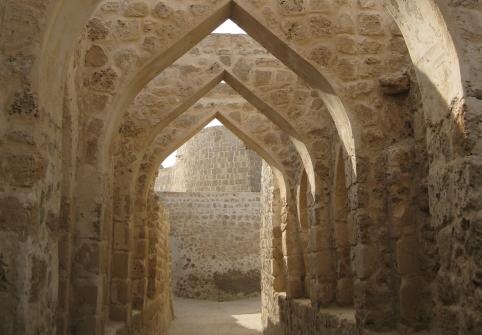News
Preservation of the Built Heritage from an Islamic Perspective
30 Oct 2016Dr. Remah Gharib, Assistant Professor at CIS, exploring the vital role of Islamic Jurisprudence in supporting the preservation of the built heritage and urbanism.

Lately, I have been studying the concept of preservation of built heritage through Islam. Even though it is challenging to study such sensitive and crucial topics from a religious perspective, it will open up various arguments and discourses. Our current research clarifies that we have the right to live in a healthy and well-built environment. The research explores the Islamic principles regarding urbanism and development to prevent the abuse of surrounding environments.
Principally, mankind is required to maintain life and preserve the overall environment and responsible for avoiding corruption, pollution and any harm. Here, urbanism includes architecture and any construction, but we are also focusing on the improvement of past architecture, renovating buildings to secure souls, and ongoing maintenance to sustain vibrant and intact urbanism. By exploring the vital role of Islamic Jurisprudence (Fiqh) in human service and satisfaction of the society, the act of preservation secures the city with a sense of justice, virtuous urbanization, and upholding the past and future architecture.
We seek to provide a renaissance in the understanding of built heritage preservation in Islamic contexts. Qur’anic verses made this possible through limited texts in their wording, which become broad in their meaning and implications. We are analysing these jurisprudential principles to support preservation of the built heritage and urbanism. This approach is a progressive revolution in this current time at the level of Islamic thought in general, collecting thoughts between rational curricula, dialectical and experimental evidences.
We may endorse that the preservation of the built heritage is legitimate from the Islamic law perspective; this is because Islam mandates mankind to utilize wisely the resources available to shape a proper physical and economic environment. Preservation of the built heritage returns with benefit to the major society and assures that resources are recycled to serve humanity for longer generations. However, the Islamic world consists of various geographical and historical contexts that require further research to understand the concepts of ownership and maintenance toward the historic environments, keeping in mind local cultural and norms and not just religious principles. Our research will continue to investigate the dimensions of preservation on the wider scale of cultural heritage, involving Islamic scholars and institutions, preservationists, users and visitors to search, learn and develop new understandings that oppose our current challenges.
